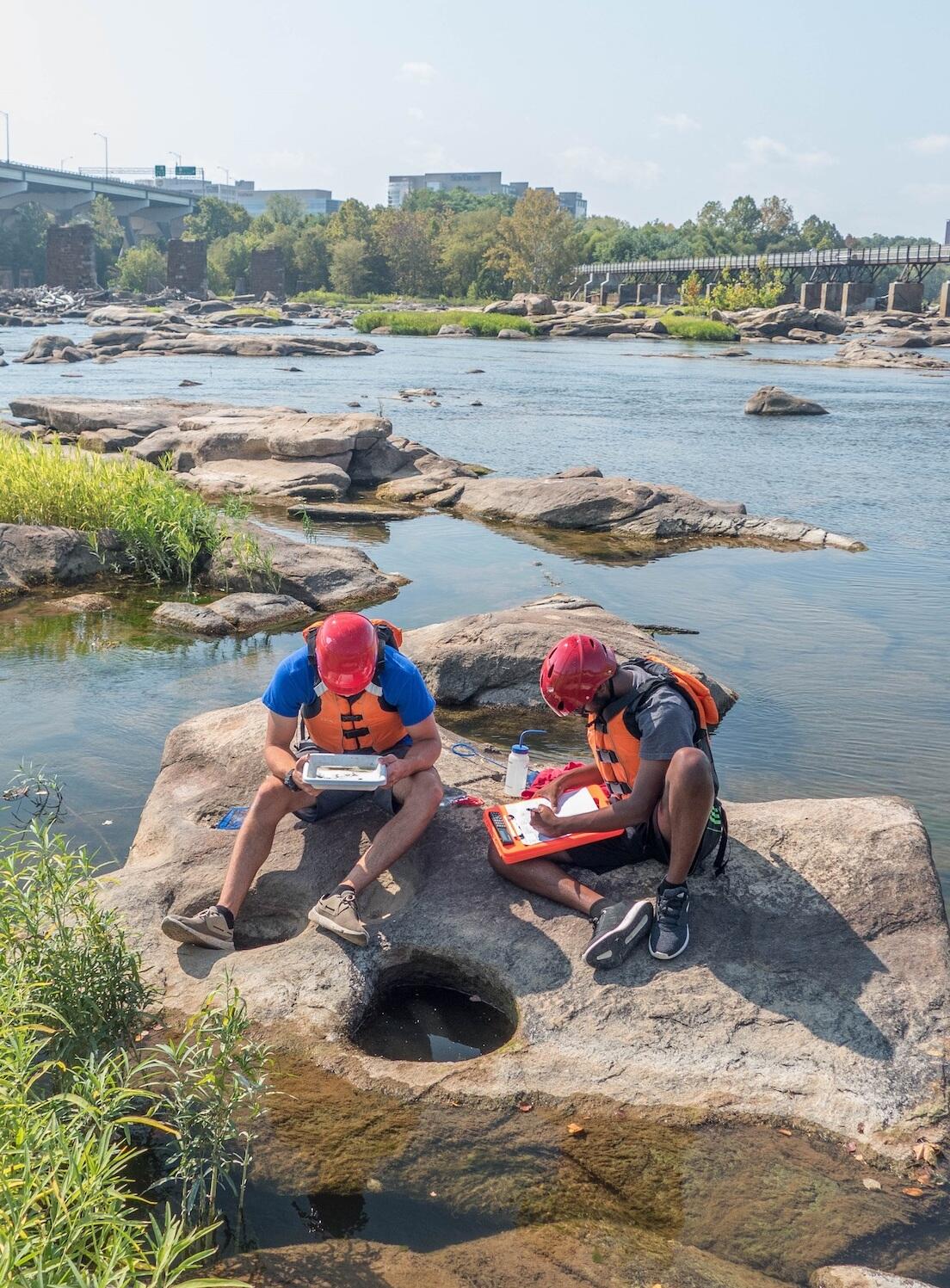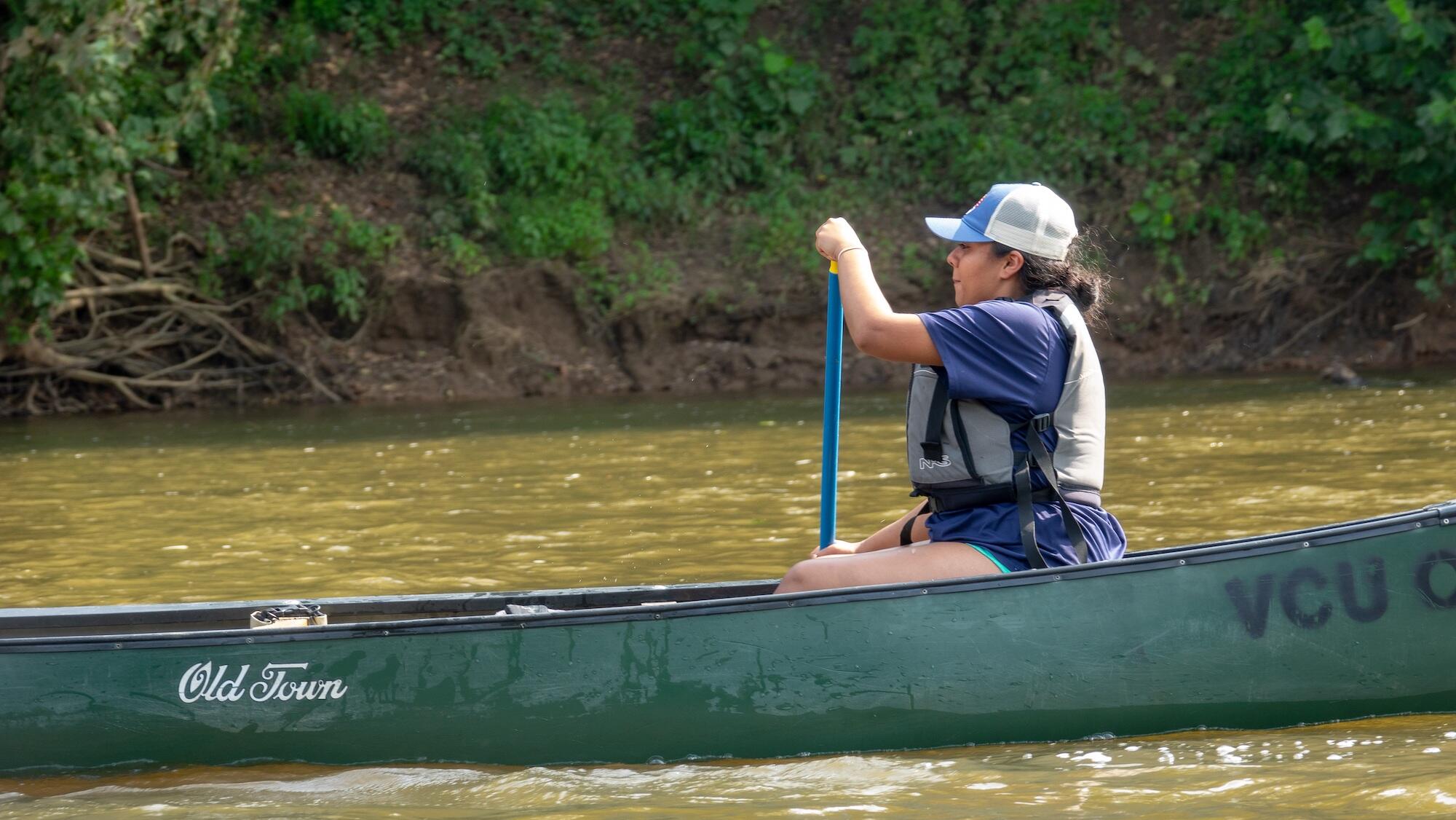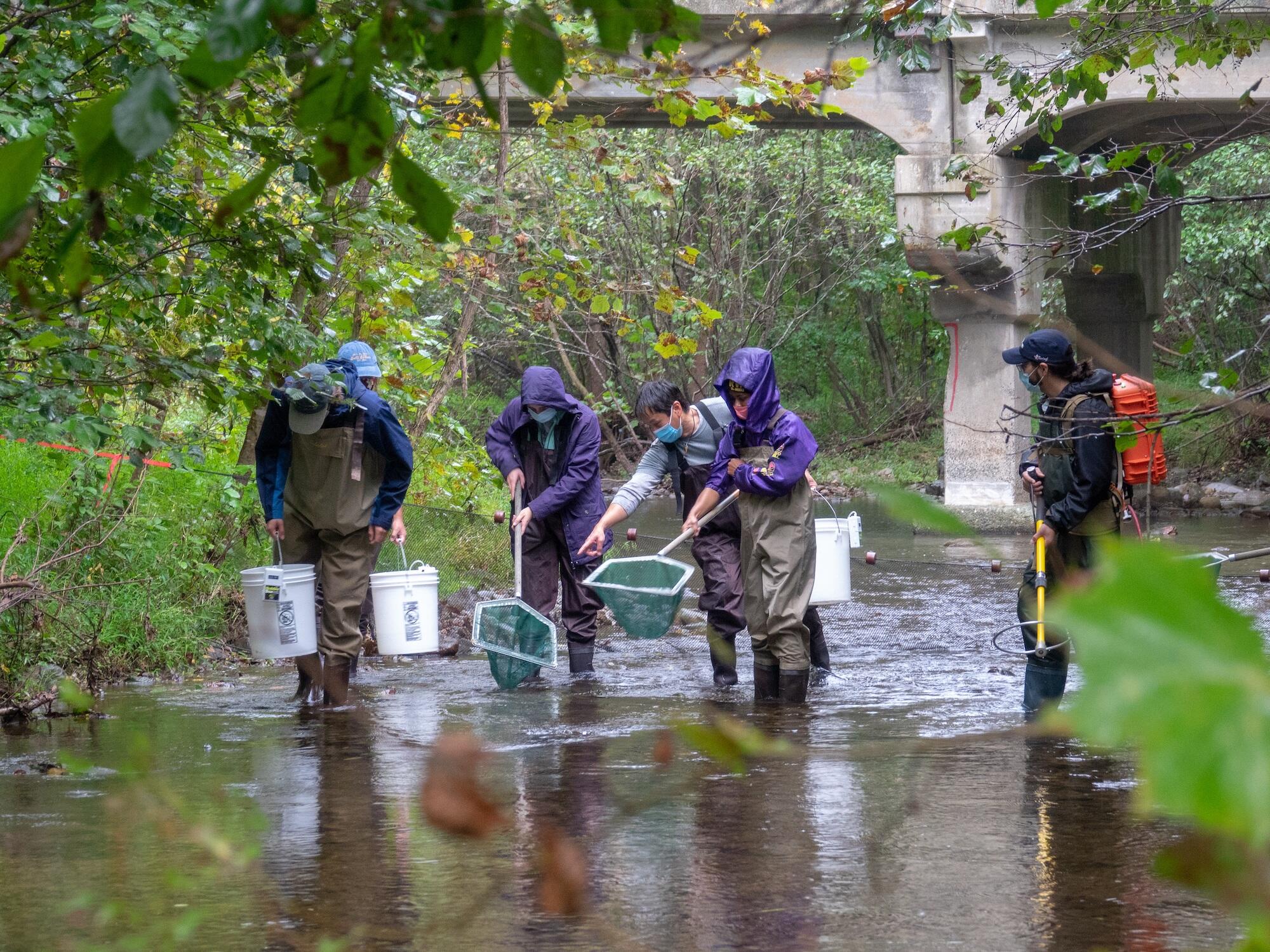
July 14, 2021
How VCU’s Center for Environmental Studies is emerging as a national leader in hands-on freshwater education
Share this story
The National Science Foundation has awarded a $497,000 grant to a Virginia Commonwealth University Center for Environmental Studies faculty member who will lead a collaborative network of more than 100 professors across 35 states focused on providing undergraduate STEM education through inclusive, interdisciplinary and immersive field studies on the nation’s rivers.
As part of the five-year grant led by professor James Vonesh, Ph.D., the River Field Studies Network will train 40 to 50 instructors in field programs, incubate five or six new river field courses and develop more than 50 open-source educational resources focused on river field studies.
“We [will] provide professional development and training for faculty to teach effectively and safely in river field settings with the goal of broadening the quantity, quality and diversity of experiential river field education,” Vonesh said.
The NSF grant follows a separate but similar significant grant awarded last fall to a team of researchers including Daniel McGarvey, Ph.D., an associate professor at the Center for Environmental Studies. That five-year $2 million grant from the National Science Foundation to the Society for Freshwater Science will fund a project, Emerge, that aims to support training and experiences for underrepresented minority students and early career scientists in freshwater science.
“In a nutshell, the goal of Emerge is to increase — hopefully by a dramatic margin — the number of underrepresented minorities who pursue careers in freshwater science,” said McGarvey, who co-leads the project with Amy Rosemond, Ph.D., at the University of Georgia.

Three VCU students — Felisha Walls, Giancarlo Racanelli and Leonor Rodriguez-Guevara — are among the first cohort of Emerge fellows and participated in the 2021 annual meeting of the Society for Freshwater Science.
Over its initial five years, the Emerge grant will sponsor undergraduate and graduate students, along with early career professionals, to attend national conferences and training workshops.
“Moreover, there will be continuity among years,” McGarvey said. “We'll be keeping as many of the participants active and engaged in the program as possible, over the course of multiple years, with the intent to build a critical mass of young professionals that becomes a benchmark for community support as the participants develop.”
The two grants are getting underway at VCU at the same time as several other initiatives focused on experiential education and rivers.
In 2016, for example, VCU partnered with the River Management Society to launch a River Studies and Leadership Certificate program, awarded upon completion of river-focused coursework and a river-related professional project.
And this fall, the Center for Environmental Studies and VCU’s Outdoor Adventure Program will begin offering a Certificate in Outdoor Leadership that will provide hands-on experience and training for students interested in leadership roles in private and government land management, the outdoor recreation industry, field research, environmental education, ecotourism and other fields.
Along with these developments, the Center for Environmental Studies has also launched related academic programs such as “Freshwater Fridays,” a block of experiential courses held on Fridays and focused on freshwater science and policy.

Taken together, Vonesh said, it is clear that VCU is emerging as a national leader in experiential freshwater education.
“As a large public university with diverse academic programs interested in diverse aspects of rivers located in a state capitol on an economically, culturally, biologically significant major American river, VCU is ideally positioned to lead river field studies,” he said. “The Richmond community is very invested in river issues, the James River Park System provides a natural field laboratory in walking distance of campus, the state agencies that manage our rivers are close at hand. These create opportunities for VCU students to engage in hands-on learning in our community, in addition to our flagship field courses.”
The new Certificate in Outdoor Leadership, he added, will be a “great gateway to practical river safety skills training and creates a pathway for students to fall in love with rivers through recreation — [such as] learning to canoe, kayak, raft or [stand-up paddleboard].”
VCU faculty members are engaged in diverse scholarship related to rivers, he said, and the VCU Rice Rivers Center provides a venue alongside the James River for research and conservation work.
Importantly, Vonesh said, VCU is also poised to become a leader in making the field of river studies and outdoor leadership more inclusive.
“VCU's diverse student body provides us the opportunity to bring a broader range of students into contact with rivers — to build the diverse group of stakeholders that the challenges facing rivers worldwide will demand,” he said.
Subscribe to VCU News
Subscribe to VCU News at newsletter.vcu.edu and receive a selection of stories, videos, photos, news clips and event listings in your inbox.










